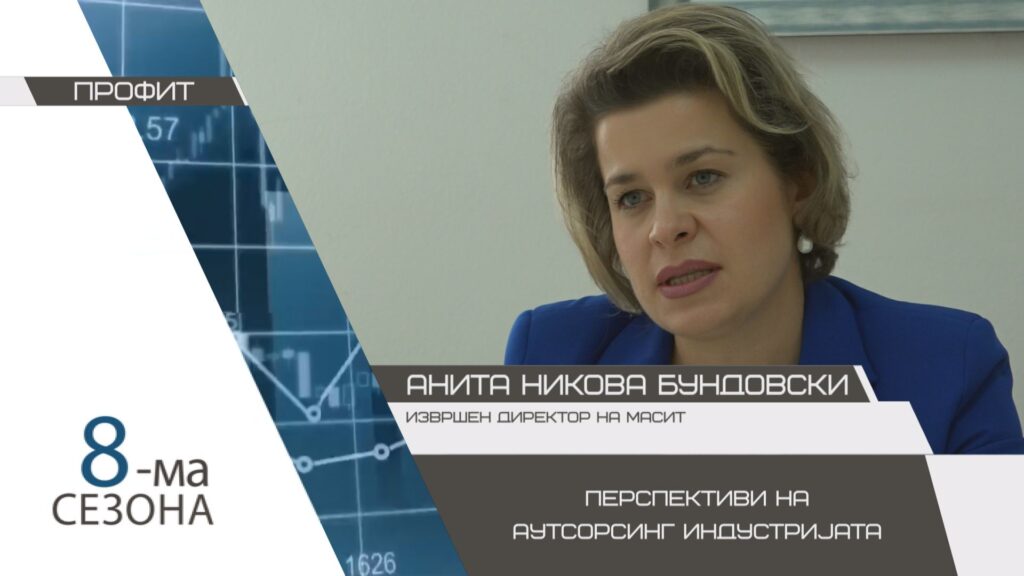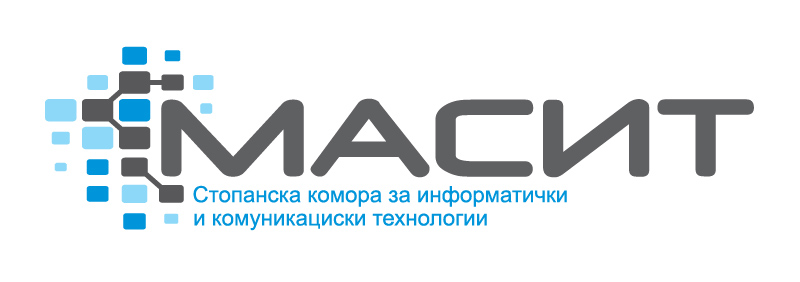Interview for export.mk Anita Nikova is the Executive Director of MASIT, the Chamber of Commerce that represents the interests of companies working in the field of information and communication technologies and who has been working for years on the ICT industry to get the right place in the economy and the state it deserves.The ICT sector in 2018 generated revenues of over EUR 862 million, and the export of this industry in the past five years has grown from EUR 60 million to over EUR 160 million.Nikova says that the ICT sector has great potential to increase exports with more value added from the country. In an interview with Export.MK Nikova announces and explains the measures that MASIT will ask the state for the ICT sector to become even more competitive. MASIT’s demands include a reduction in fiscal charges for employees, support for investment in education and training of staff, as well as a range of different tax measures and incentives to improve the working conditions of employees in the sector. You have been at MASIT for a long time as CEO, which is practically the voice of the Macedonian ICT industry. How satisfied are you with the Chamber of the achievements so far in the direction of the ICT industry getting the right place and treatment? MASIT has been representing and advocating the interests of the ICT industry in the country for 20 years, striving to get the ICT industry the right place and treatment, which I believe we are still far from, although a significant portion of our suggestions and remarks have been accepted in recent years. and realized.MASIT’s endeavors are not only to stimulate the ICT sector, but to raise the awareness of the whole society that without the ICT industry, the growth of the overall economy in all branches of the economy and its competitiveness is impossible.It is necessary to change the perception of the ICT industry, that it is not only a service activity of other branches, but that it is the backbone of prosperity and development. We believe in the potential of the ICT industry that can improve the overall economy and quality of life of all citizens in our country. The ICT industry has seen continuous growth and development in the last few years. Can you bring the public the importance and importance of the ICT industry to the Macedonian economy a little more visually? The ICT industry is a rare example of a part of the Macedonian economy that has the potential to generate strong economic growth and benefits that are felt not only in the economy but also in society at large. It is an industry where there is direct investment without the exploitation of natural resources, there is no pollution of the environment, and the state of raw material export can turn into an exporter of high value added products and services.Expansion of this industry means increase of foreign exchange inflows, development of all other sectors, digitization of the economy and the state itself, ie the state apparatus.Today, the technological development of a country is directly linked to the development and progress of the ICT sector as it carries the most modern concepts of management, production, marketing and so on.The ICT sector has unlimited potential and has seen steady employment growth, while employees are one of the highest paid professionals, working in the best possible conditions and contributing the most to taxes and contributions in the country.According to the data at our disposal, the ICT sector has registered continuous growth with total revenues of EUR 862,342,656 in 2018, which is an increase of 10% compared to 2017. The number of employees in the sector increased by 14,541 at the end of 2018, ie 7% more than in 2017. Exports also recorded high growth rates with export revenues of EUR 160 million for 2018, up by 25% compared to 2017. We will soon have the figures for 2019 which we expect to show further accelerated growth of this sector. An additional increase was also registered in the average net salary paid in the sector, which, according to the latest data published by the Statistical Office, amounted to Denar 60,899 in October 2019 (increase of 2.1% from the same period last year) and was 2.4 times higher than the average. salary in the state.For the importance and importance of this sector for the Macedonian economy we point out to the indicator average income per employee which at the level of the whole economy amounts to 15,317 euros, while in the ICT sector the average income per employee is 59,304 euros. This means that one employee in the ICT sector contributes 3.9 times more than the average for the whole economy. Export of information and computer services from the country has seen high growth rates in the past years. How do you assess the export potential of this sector and how can ICT exports increase? The outsourcing industry is one of the fastest growing in Macedonia, with double-digit employment growth in each of the last five years, and is developing as one of the most promising industries in the national economy.The number of employees working in 187 companies in this area is 5,713, which is 0.6% of the total number of employees in the economy. That’s up from 1,174 people over 2017, with the number expected to reach 15,000 by 2022. The outsourcing industry’s revenues reached EUR 150.3 million in 2018, ie growing at an average rate of 17.9% per annum in the period 2015 – 2018. The industry is growing significantly faster than the domestic economy and by 2022 its revenues will reach 288 million euros. What measures could be effective to increase the competitiveness of this sector and increase exports? First, by reducing the fiscal burden on ICT employees, it is necessary to promote the competitiveness of Macedonian ICT companies on the international market.Second, by supporting education, both formal and non-formal education, it is necessary to produce new quality staff






